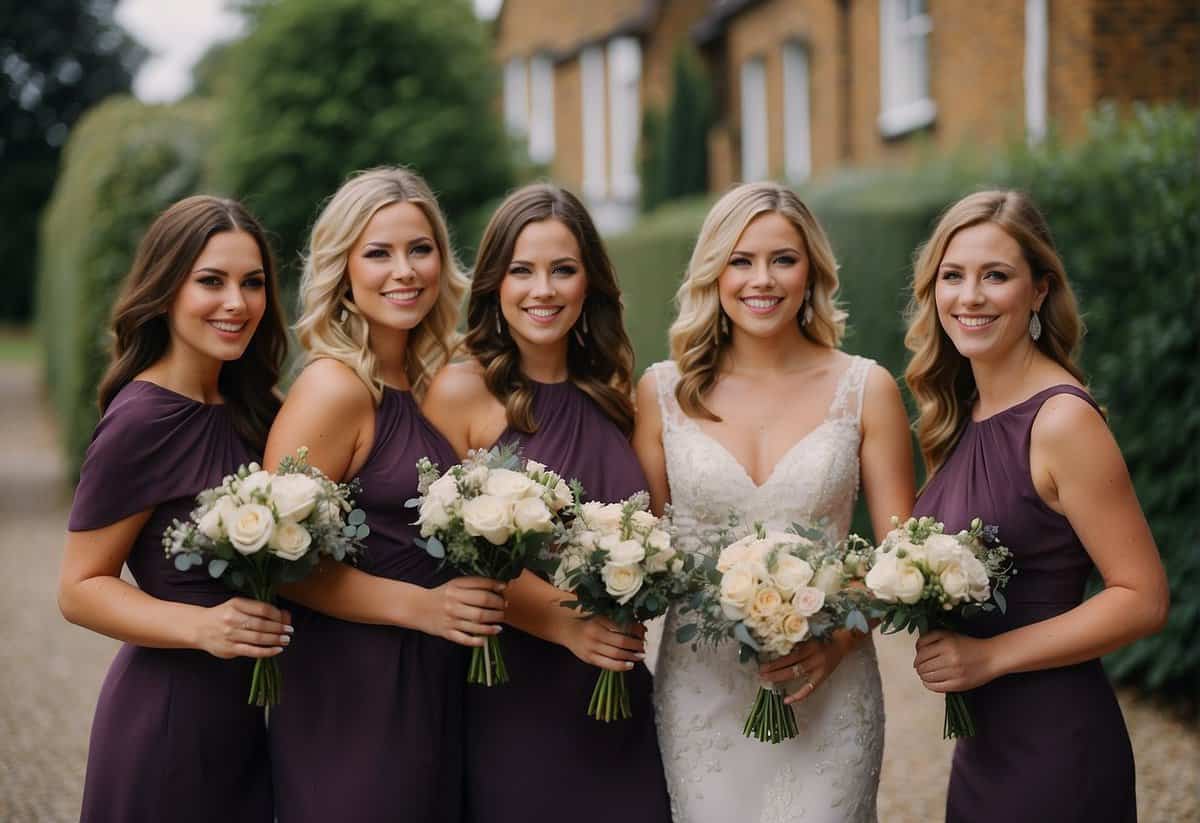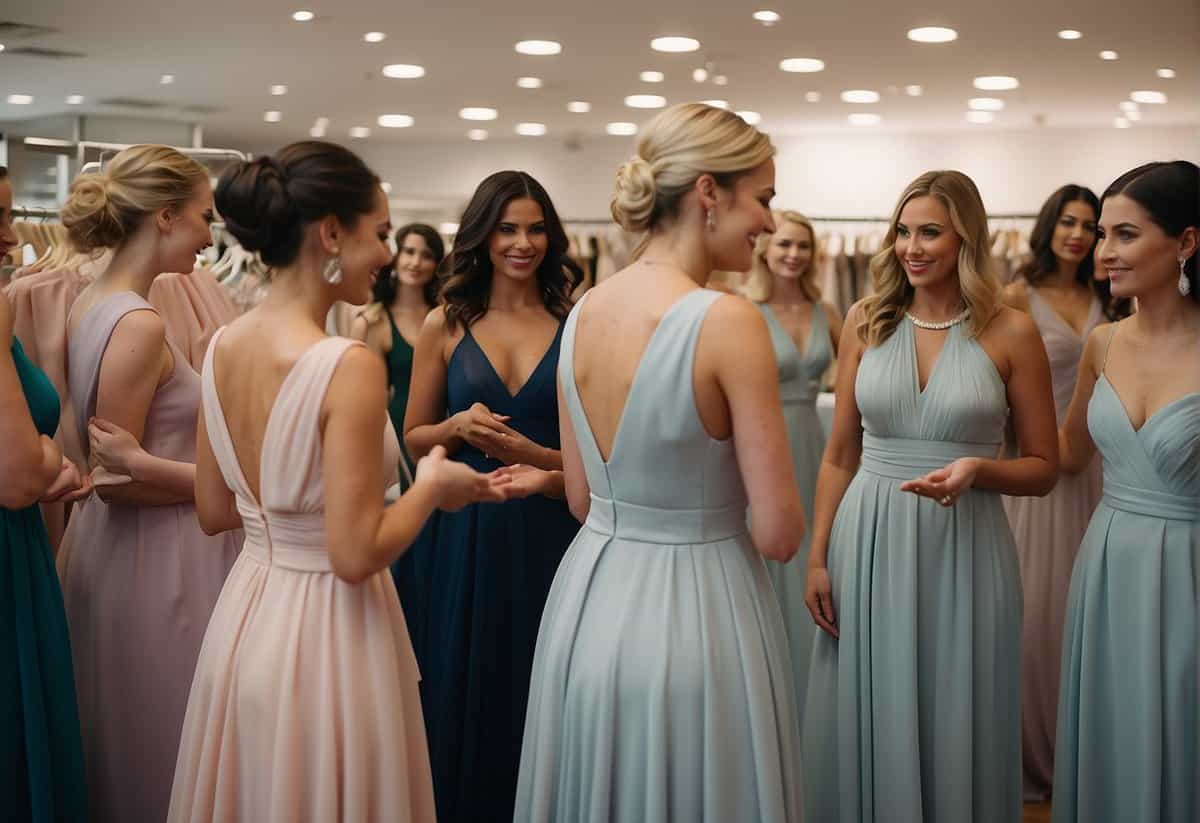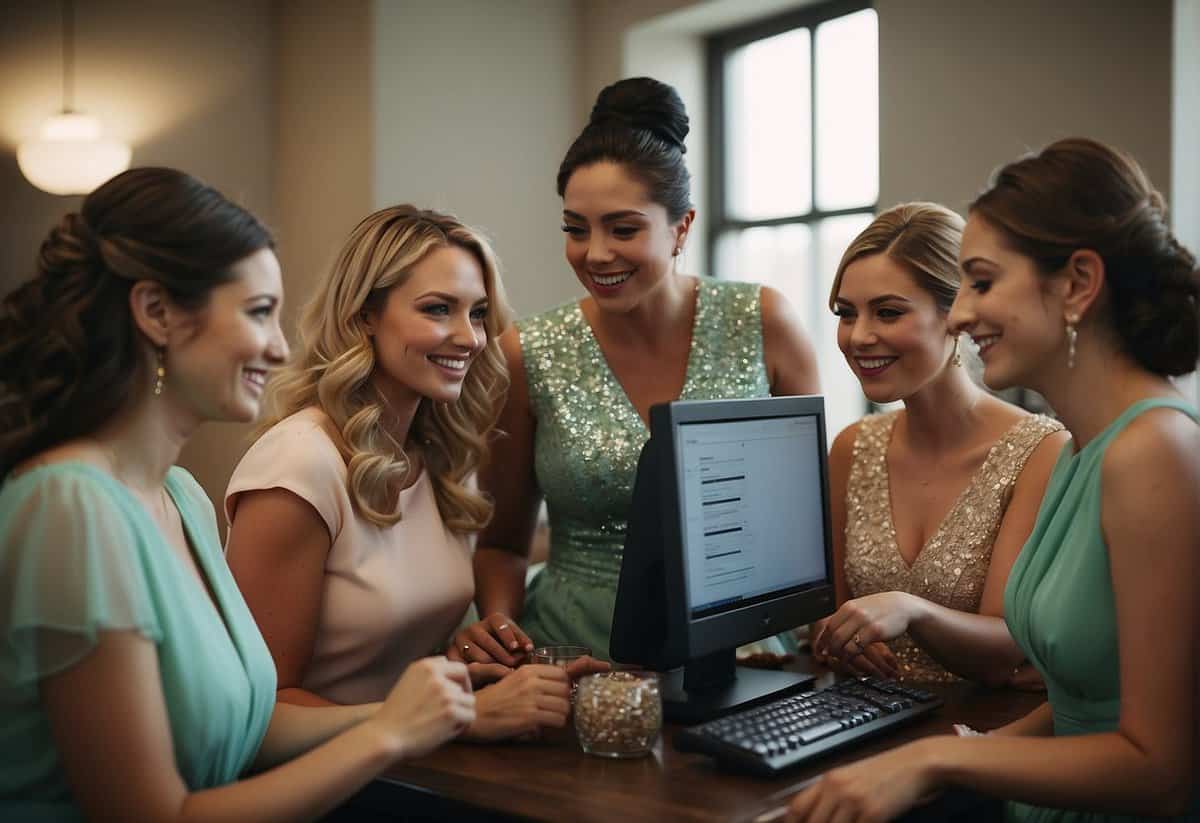Do Bridesmaids Pay for Their Own Dresses in the UK? Unveiling Wedding Attire Costs
When planning a wedding in the UK, the question of whether bridesmaids should pay for their own dresses is an aspect that requires careful consideration. Traditionally, it has been expected that the cost of bridesmaid dresses is covered by the bride or the individuals funding the wedding. This expectation is rooted in the desire to control the aesthetics of the wedding party and to ease financial burdens on the bridesmaids.

However, modern trends show a shift towards bridesmaids contributing to or paying for their own dresses. This change in tradition acknowledges the varying financial situations of wedding participants. It’s important to have an open discussion about who will shoulder the cost and to set clear expectations from the outset. When bridesmaids are expected to pay for their own dresses, affordability becomes a key factor in the selection process, ensuring that the chosen attire is within their financial means.
Key Takeaways
- Traditional etiquette often has the bride paying for the bridesmaids’ dresses.
- There is a growing trend towards bridesmaids paying for their own dresses in the UK.
- Open communication and consideration of affordability are important when discussing dress costs.
Understanding Bridesmaid Dress Etiquette in the UK

When planning your wedding, understanding the etiquette surrounding bridesmaid dresses is pivotal to a smooth experience. This involves knowing who traditionally pays, how to approach the conversation, and managing budgets responsibly.
Traditions and Modern Expectations
Traditionally in the UK, it was common for bridesmaids to pay for their own dresses. However, modern practices are more varied, with some brides choosing to cover the cost themselves, especially if they have specific styles or costly dresses in mind.
Communication and Decision-Making
Open and honest communication between the bride and her bridesmaids is essential. Decisions about attire should involve a discussion about budget and expectations, ensuring everyone is on the same page and comfortable with their responsibilities.
The Costs Involved
Costs for bridesmaid dresses can vary significantly, with expenses including the dress itself, alterations, and any coordinating accessories. It’s important to consider the financial situation of all involved parties when planning.
Who Typically Pays
The answer to who pays can depend on several factors. While it’s becoming more common for brides to pay for the dresses as part of their wedding budget, in some circles, bridesmaids or their families are still expected to contribute.
Handling Financial Constraints
If a bridesmaid is facing financial constraints, it’s important for the bride to be understanding and provide solutions, such as opting for a more affordable price range or even considering rental options.
Alternatives to Buying
For those on a tight budget, alternatives such as renting dresses or seeking out sales can help ease the financial burden. A trend towards mismatched bridesmaids dresses can also offer more flexibility and affordability.
The Impact on Wedding Planning
The decision of who pays for bridesmaid dresses has a significant impact on wedding planning. It affects budgeting, attire choices, and can even influence the overall wedding style and experience.
Bridesmaid Dress Costs and How to Manage Them

Navigating the costs associated with being a bridesmaid can be tricky, but with careful planning and open communication, you can gracefully manage your finances. Here’s how to break down the expenses and find ways to make bridesmaid dress shopping a stress-free part of your wedding journey.
Breaking Down the Costs
Bridesmaid dresses in the UK can vary widely in price, often ranging from £100 to £300 or more. Accessories like shoes, jewelry, and bags add to the cost, as do potential hair and makeup services, which might cost an additional £50 – £100 each. It’s important to itemize these expenses early on to understand the full financial commitment.
Budgeting for the Bridal Party
First, establish a budget that accounts for all attire-related expenses. Create a list that includes:
- Bridesmaid dress
- Shoes
- Accessories
- Hair and makeup
Remember, everyone’s financial situation is different, so a budget that works for one bridesmaid may not be feasible for another.
Tips for Saving Money on Dresses
To keep costs down, consider these strategies:
- Shop during sales or off-season times. Dresses may be less expensive.
- Look for dresses that can be worn again to increase the value of the purchase.
- Be flexible with style choices to allow bridesmaids to select more affordable options.
Discussing Budgets with Bridesmaids
Engage in an open and honest conversation about finances early on. A tactful discussion can help set expectations and make everyone feel comfortable with their spending. Be prepared to discuss:
- The overall budget for bridesmaid attire
- Each person’s ability to contribute
The key is understanding each bridesmaid’s financial situation without making assumptions.
Financial Support Options
If bridesmaids are struggling to meet the financial requirements, consider:
- The bride and groom contributing, especially if specific attire is requested.
- Looking for budget-friendly retailers or second-hand options.
- Checking if family members can offer support.
Your role is to find a balance that honors their commitment without overstretching their budgets.
Addressing Bridesmaid Responsibilities Beyond Dresses

When you’re a bridesmaid, your role extends well beyond just your outfit. You play a crucial part in the lead-up to the wedding and the big day itself, from pre-wedding celebrations to the finer details of the wedding day.
Additional Outfit Components
Your bridesmaid ensemble includes more than just the dress. You’re often expected to coordinate shoes and accessories to complement the wedding’s color scheme. Some brides may request you purchase specific bridesmaid shoes or jewelry to achieve a harmonious look with the rest of the bridal party.
Pre-Wedding and Wedding Day Contributions
You’ll typically have responsibilities like organizing the hen party, which could involve arranging accommodation, travel, and transportation. On the wedding day, you may need to contribute to the food and drinks, especially if you’re hosting a bridal suite where the party gets ready.
Bridal Party Dynamics
Navigating the dynamics of the bridal party is key. Whether it’s coordinating with groomsmen for the ceremony or working alongside other bridesmaids to perfect the day, your role is to foster a supportive and positive environment.
Navigating Extra Expenses
Attending a wedding isn’t cheap, and as a bridesmaid, you might incur extra costs. This can include pitching in for the wedding gift, sharing costs for the hen do and stag do, and sometimes, helping with the accommodation expenses if the wedding is far from home.
Wedding Rituals and Assistive Roles
Your presence is vital in traditional wedding rituals. You might be asked to hold the bride’s bouquet, arrange favours, or even manage the music playlist. During the ceremony, you might be tasked with ensuring the rings are presented on time and that the bride’s entrance is as smooth as can be.
Frequently Asked Questions

When you’re a bridesmaid preparing for a UK wedding, you may have questions about who covers the costs for various aspects of your role. Here’s a breakdown to help you understand the customary practices.
Is it customary for bridesmaids to purchase their own dresses for a wedding in the UK?
In the UK, it varies; however, it’s not uncommon for bridesmaids to pay for their own dresses. This can sometimes depend on the bride’s preferences and the overall wedding budget.
What is the usual protocol for covering bridesmaid dress costs in the UK?
Typically, either the bridesmaids themselves cover the cost, or if the bride has the means, she might choose to contribute. This decision is usually agreed upon early in the wedding planning process.
How often do bridesmaids bear the expense of their hair and makeup for UK weddings?
It’s common for bridesmaids to pay for their own hair and makeup, especially if the bride is also covering other costs. However, some brides may opt to cover hair and makeup as a gift to their bridesmaids.
Should bridesmaids expect to contribute financially to their attire in UK weddings?
Yes, you should generally expect to pay for at least some elements of your bridesmaid attire, including the dress, shoes, and accessories, unless agreed otherwise.
What is the typical cost range for bridesmaid dresses in the UK?
Bridesmaid dresses can cost anywhere from £100 to over £800, heavily depending on the formality of the wedding and the type of dress selected.
In the context of UK weddings, who generally pays for the bridesmaids’ dresses?
It’s a shared practice, but in about three quarters of the cases, the bride or the couple pays for the bridesmaid dresses, with some exceptions based on individual circumstances or regional traditions.

